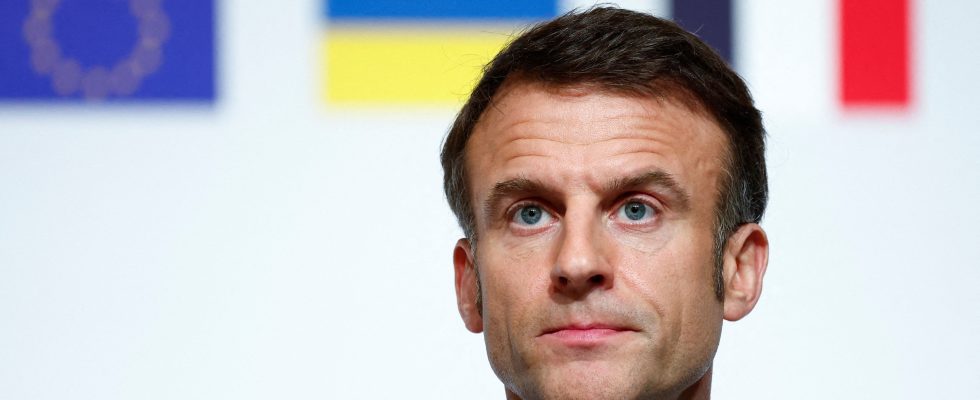“Nothing should be excluded.” At the end of an international conference in support of Ukraine, Emmanuel Macron suggested Monday evening that a sending of European armed troops to the Ukrainian front could not be ruled out. “We will do everything necessary to ensure that Russia cannot win this war,” he said, acknowledging “assuming” a “strategic ambiguity”. And to argue: “Many people who say ‘Never, never’ today were the same people who said ‘Never tanks, never planes, never long-range missiles’ two years ago.”
An unexpected exit, to say the least, which caused an outcry within the French political class and aroused the emotion of a large part of our European neighbors.
End of inadmissibility from Berlin and London
This Tuesday morning, the German Chancellor affirmed that “no soldier” would be sent to Ukraine by EU or NATO countries. For Olaf Scholz, the watchword remains the same. “What was decided between us from the beginning continues to be valid for the future”, namely “that there will be no troops on the ground, no soldiers sent either by the European States or by the States of NATO on Ukrainian soil,” he underlined during a press conference.
In addition, London, which nevertheless has a “small number” of men on site “to support the Ukrainian armed forces, particularly in terms of medical training”, also disagreed with Emmanuel Macron’s statements. . “We do not plan a large-scale deployment,” assured a spokesperson for British Prime Minister Rishi Sunak.
A “not current” question
Thirty-second country to enter the Atlantic Alliance, Sweden recalled that Ukraine had not made any request in the direction of sending ground troops “The question is therefore not current affairs”, thus evacuated the Swedish Prime Minister Ulf Kristersson.
Same story on the Rome side. International support for Ukraine “does not provide for the presence on Ukrainian territory of troops from European states or NATO”, indicates a government press release. Madrid also announced through executive spokesperson Pilar Alegria that Spain was not in “agreement” with the idea of ”deploying European troops in Ukraine.”
In Eastern Europe, the tone is identical: “We are not considering sending our troops to Ukraine and we have a common position on this point (with the Czech Republic),” declared Polish Prime Minister Donald Tusk in the presence of his Czech counterpart Petr Fiala.
For its part, NATO also rules out any sending of troops to the theater of operations. “NATO and Allies are providing unprecedented military aid to Ukraine. We have done so since 2014 and shifted into high gear after the full-scale Russian invasion. But there are no plans of NATO combat troops on the ground in Ukraine,” an Alliance official told our AFP colleagues.
Hungary’s headwinds
Regularly going against the grain of its European neighbors, this time Hungary seems to find its benefit in the almost unanimous opposition to Macron. This Tuesday, Budapest said it was fiercely opposed to sending “arms or soldiers to Ukraine”. After having blocked a round of European aid to Ukraine for several months, the position is therefore not surprising. But for the head of Hungarian diplomacy, Peter Szijjarto, the reasoning is clear: “We must end the war, not deepen and widen it.” Understand: by threatening ground intervention by European powers, Emmanuel Macron risks amplifying the conflict.
As of Tuesday morning, the Kremlin made it known that it was “absolutely not in the interest of these countries” to send soldiers to Ukraine. Even more, the simple fact of evoking this possibility constitutes, according to the spokesperson for the Russian presidency, Dmitri Peskov, “a very important new element” in the conflict. Asked about the risk of a direct conflict between NATO and Russia in the event of a military presence in Ukraine, Dmitry Peskov replied that “in this case, we should not talk about probability, but about inevitability.” The message could not be clearer.
